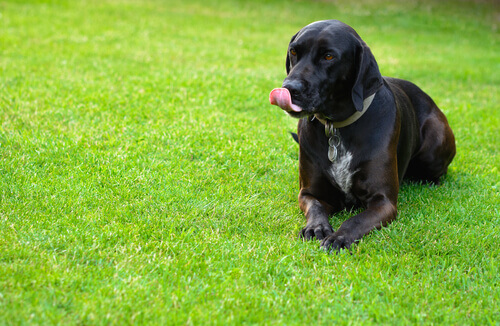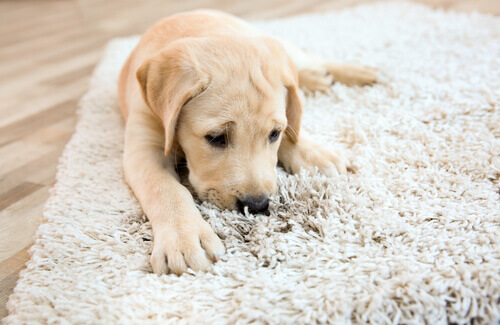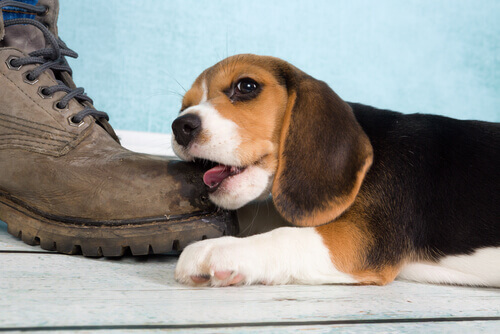Why Your Dog Licks the Floor

It’s definitely true that dogs are one of the friendliest animals on the planet. But we can also say that they have quite strange habits. For example, you probably don’t understand why your dog licks the floor.
It’s true that dogs love to lick everything because, for them, this action has a social function. In this interesting article, we’ll tell you about what this action means for them, as well as its implications.
Why your dog licks the floor
Dogs are curious animals by nature. They’re always sniffing and observing their environment to better understand it and meet their instinct for adventure. Not all licks are the same for dogs. In fact, they sometimes lick to greet their equals or other people.
For them, licking fulfills the function of a greeting, like a handshake does for humans. Sometimes, your dog licks you to say that it’s happy to see you again and to express its emotions and affection towards you in that way.
And what happens when your dog licks the floor? Well, along with other actions, licking can mean one thing or another. Your dog may lick the floor because it’s curious. Likewise, it can be a sign that your dog is stressed out.

Why your dog licks the floor
You’re walking your dog down the street or in a park and it stops to sniff, which is something it usually does. However, it catches your attention when it starts licking the floor. This puzzles many first-time dog owners and can even worry and alarm them for no reason.
The truth is that dogs lick the floor in order to smell it better. Moisture allows odors to be better detected in their nose. Thus, licking allows dogs to identify smells more clearly. If you see your dog licking the sidewalk, it’s because it smells good and it wants to make sure it tastes just as good.
Sometimes, dogs also lick the floor to detect other dogs with the smells of the street. As is well known, dogs mark their territory almost everywhere and licking the floor allows them to better smell other dogs.
When is licking the floor a warning sign?
Let’s say you’re at home enjoying a pleasant afternoon and your dog starts licking the floor non-stop. There’s no food or traces of other animals in the area, so why does it do it? This unjustified activity can be a sign that your dog has a stomach problem.
This action helps it to induce vomiting so it can feel better. This is because licking the floor allows them to swallow dirt, dust, and other elements that induce this action. The same goes for when they bite clothes, sheets, and even shoes in some cases.

Other reasons why your dog licks the floor may be stress, anxiety, and even nervousness. Most dogs that spend a lot of time alone, apart from making a mess at home, tend to lick the floor to release the energy they built up during the day.
Likewise, personality greatly influences whether or not a dog will develop this behavior. For example, a nervous dog tends to lick the floor more when it’s alone or when there are big changes in its environment or home.
You simply have to carefully observe the circumstances in which your dog licks the floor. As dogs aren’t able to verbally communicate like humans do, they resort to other means or signs to get our attention.
Sometimes, when a dog licks the floor, it’s simply a bad habit or a game. In these cases, you need to apply corrective actions to eliminate this behavior.
The best way to identify the reasons why your dog does this is to take them to the vet. The professionals will be able to run the necessary tests to rule out possible diseases and even give you a few tips and pointers to eliminate this behavior.